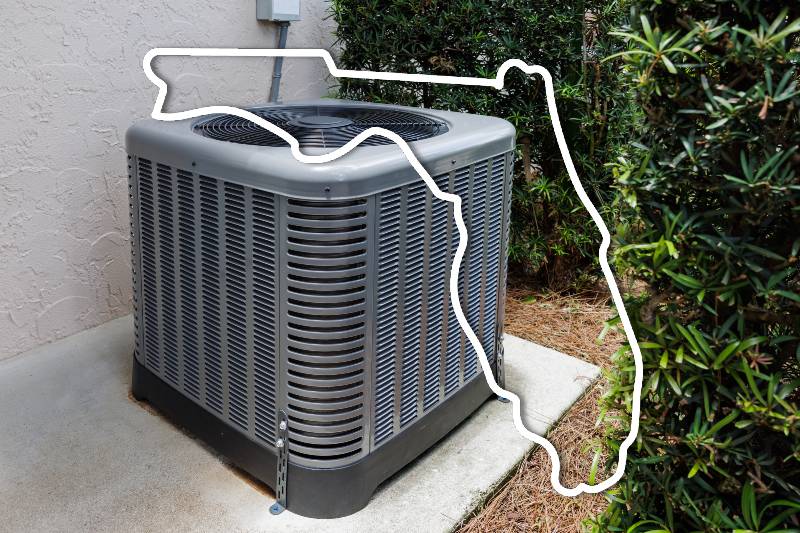Hello, future homeowners! Are you wondering how buying a home could unlock numerous tax and savings benefits? This is your one-stop guide to understanding the financial perks of owning a home. If you’re a first-time home buyer or considering an investment property, this guide explains in simple terms the financial advantages that come with homeownership.
The Power of Homeownership
When you buy a house, it’s not just about having a place to call home. It’s also about making a strategic financial move. Owning a home offers multiple tax advantages that can help increase your savings over time. There are various tax benefits, such as mortgage interest deductions, property tax deductions, and tax breaks for selling your home. In addition, there are savings benefits, including building home equity and the potential for rental income.
Mortgage Interest Deduction
One of the main tax benefits of owning a home is the mortgage interest deduction. This allows homeowners to deduct the interest paid on their mortgage from their taxable income, which can result in substantial tax savings.
As an example, let’s say you decided to take out a mortgage of $300,000 at an interest rate of 6.5%. During your first year of homeownership, you would pay approximately $19,500 in mortgage interest. When tax season arrives, you will then be able to deduct this $19,500 from your taxable income. As a result, your tax obligation decreases, leading to significant savings.
Property Tax Deduction
Homeowners can deduct up to $10,000 of state and local taxes, including property taxes. This deduction can lower your overall tax bill and potentially put more money back in your pocket.
Now, let’s see how you would benefit from a property tax deduction. Your new house has a property tax rate of 1%. Therefore, you paid $3,000 in property taxes for your $300,000 house in the first year. When tax season comes around, you could deduct the full amount of this property tax from your taxable income.
Deducting Mortgage Discount Points
Mortgage discount points, often simply called “points,” are another area where homeowners can reap tax benefits when buying a home. These points are a form of prepaid interest that buyers can choose to pay up-front at closing to lower the ongoing interest rate on their mortgage. Each point typically costs 1% of the total loan amount and reduces the loan’s interest rate by a fixed amount, usually 0.25%.
Mortgage discount points are treated as mortgage interest by the IRS and can be deducted in the year they are paid if certain conditions are met. Suppose you choose to purchase two discount points when closing on your $300,000 mortgage. That’s an upfront payment of $6,000 (since each point costs 1% of the total loan). By purchasing these points, you’ve effectively lowered your mortgage’s interest rate by 0.5%. So, in this scenario, you can deduct the full $6,000 you paid for the discount points from your taxable income when filing your taxes.
Just like with the mortgage interest deduction and property tax deduction, the ability to deduct mortgage discount points is another avenue through which homeownership can provide significant financial advantages.
Be sure to consult with a tax advisor to ensure your circumstances allow for such deductions.
SALT Deduction
Think of the SALT (State And Local Taxes) deduction as a tax gift from Uncle Sam. The SALT deduction is another way homeowners can reduce their tax burden. This allows you to deduct the amount paid in state and local taxes, including property, income, and sales taxes, up to a limit of $10,000 ($5,000 for those married but filing separately).
For example, let’s say you paid $7,000 in state income taxes and $5,000 in property taxes in the same year. Although the total amount for these taxes is $12,000, you can only deduct up to the $10,000 limit on your federal tax return under the SALT deduction. This decreases the amount of your income subject to federal income tax, potentially saving you a significant amount of money.
As with all tax-related matters, it’s advisable to consult a tax professional or accountant to ensure you’re correctly applying the SALT deduction and taking full advantage of the tax benefits of homeownership.
Mortgage Tax Credit Certificate
The Mortgage Credit Certificate (MCC) is a tax credit program to help lower-income individuals afford to buy a home. So, how does it work? The MCC allows you to claim a portion of the mortgage interest you paid during the year as a federal tax credit. This credit can be 20%-50% of the mortgage interest paid, depending on your state or local government’s program.
Let’s assume you qualify for an MCC, and your mortgage interest paid during the year amounts to $8,000. If your MCC tax credit percentage is 30%, this means you can claim a tax credit of $2,400 ($8,000 * 0.30). This is a direct reduction of your tax liability, meaning you would owe $2,400 less in taxes for that year. Keep in mind that the remaining interest not covered by the MCC – in this case, $5,600 – can still be claimed as an itemized deduction on your taxes. Thus, the Mortgage Credit Certificate not only diminishes your yearly tax liability but also allows you to make your dream of homeownership a reality.
If you qualify each year, you can claim this credit on Form 8396. It’s like a rebate for part of the home mortgage interest you pay. To qualify, you need to contact the right government agency about getting an MCC before you secure your mortgage and buy your home. Check with your local or state housing finance agency to learn about the availability of MCCs in your area.
Energy Efficiency Upgrades: A Tax Savings
Did you know that making your home more energy-efficient can also lead to tax savings? Certain upgrades like solar panels or energy-efficient appliances may qualify for tax credits.
You can refer to the database of State Incentives for Renewables & Efficiency (DSIRE) for comprehensive information on available programs and tax incentives for different types of energy-efficient upgrades. The IRS form 5695 is also a valuable resource, outlining the specifics of what qualifies for the Residential Energy Efficiency Property Credit. It’s important to note that not all energy-efficient upgrades qualify for a tax credit, and it can vary by year and location. Always consult a tax professional to understand the potential tax benefits of specific upgrades in your unique circumstances.
Home Office Tax Deduction
Apart from cutting down on your commute time (hello, bed to desk in 30 seconds!), there’s another benefit you might not be aware of: the home office tax deduction. If you use part of your home exclusively and regularly for conducting business, you may be able to deduct expenses like mortgage interest, insurance, utilities, repairs, and depreciation related to that space.
Are you self-employed? Do you work remotely? If you answered yes to either of these questions, then you might qualify for this fantastic perk. But remember, the keyword here is ‘exclusively.’ That means your home office can’t double as your personal yoga studio or your kids’ playroom. It must be a dedicated workspace.
The amount you can deduct depends on the percentage of your home used for business. For example, if your home office takes up 10% of your home, you could potentially deduct 10% of your home-related expenses.
In the past, employees who worked from home could potentially deduct home office expenses from their taxes. However, the Tax Cuts and Jobs Act of 2017 suspended miscellaneous itemized deductions subject to the 2% floor. This includes the home office deduction for employees. So, from 2018 to 2025, employees can no longer claim this deduction on their federal income tax return. This applies even if their employer requires them to work remotely.
However, depending on where you live, you may still be able to deduct home office expenses on your state tax return. Some states didn’t conform to the federal law and continue to allow these deductions. It’s important to check the tax laws in your specific state to understand what deductions might be available to you. Please consult with a tax advisor for personalized advice regarding your tax situation.
Building Home Equity
Another financial benefit of homeownership is building home equity over time. This works like a forced savings plan and can be a significant source of wealth. For example, let’s say Jane bought her house for $300,000. Over time, Jane pays down her mortgage, and the value of her home increases to $350,000 due to market trends and her home improvements. Jane now has $50,000 in home equity — the difference between what she owes on her house and what her house is worth. This accumulated equity in her home represents a valuable asset and a significant increase in her net worth.
Capital Gains Exclusion
The capital gains exclusion is another significant tax benefit for homeowners. If you sell your home for more than you purchased it, the profit is considered a capital gain. Homeowners can exclude up to $250,000 (or $500,000 for married couples) of this gain from their taxable income.
A Boost to Your Financial Future
Owning a home serves as a strong foundation for financial stability and growth. First and foremost, it is a form of forced savings. Each mortgage payment made contributes to the reduction of the loan principal, gradually increasing the owner’s equity in the property. Unlike rental payments, which offer no return on investment, every dollar spent on mortgage payments is money invested in an asset that can appreciate over time.
Further, homeownership often leads to appreciation of the property’s value. This appreciation, combined with the accumulation of equity, can significantly increase homeowners’ net worth. The property value can rise due to factors such as improvements to the home, a strong housing market, or positive developments in the local community. As a homeowner, you potentially stand to gain from these increases, which is not the case for renters.
Moreover, homeownership comes with several tax benefits, as discussed above, such as mortgage interest deductions and capital gains exclusion. These can lead to significant savings over the years.
Lastly, owning a home can provide a sense of stability and predictability. Unlike rent, which can increase over time, mortgage payments typically remain constant if you’ve chosen a fixed-rate loan, making it easier to budget and plan for the future. This stability, in turn, can contribute to improved financial management and future financial planning. Owning a home offers a sense of security and the potential for increased net worth through equity and property appreciation, making it a wise investment for your financial future.
At Property.com, we’re here to guide you through every step of your real estate journey. Learning about the tax benefits and savings that come with owning a home is just one of the many resources we provide to help you achieve your real estate goals.
Keep exploring our many helpful articles and resources, and stay informed on the latest news.
Sign up here for news on what’s important to you. Your real estate dreams await! With Property.com as your partner, you have the power to make them yours.












0 Comments